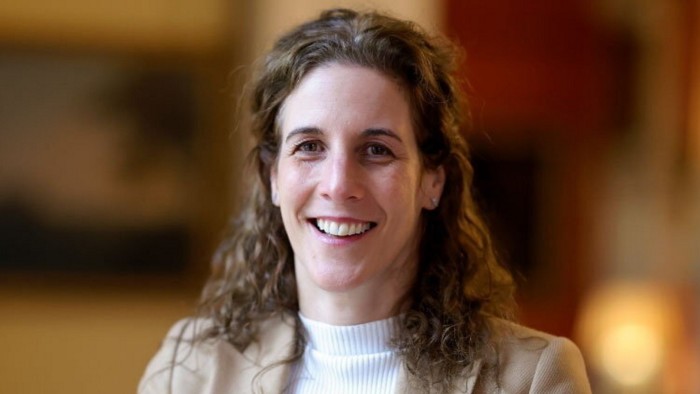Unlock the Editor’s Digest for free
Roula Khalaf, Editor of the FT, selects her favourite stories in this weekly newsletter.
A veteran NHS manager with private health sector experience has been appointed the next permanent secretary at the Department of Health, as the civil service prepares for extensive churn at the top of Whitehall.
Samantha Jones, a non-executive director at the health department, would be announced as its most senior mandarin later this month, people familiar with the plan told the Financial Times.
She is the first of a spate of new appointments at the highest level of the civil service this year and is expected to be among the most significant, given the scale of reform the Department of Health and Social Care is set to undergo following the abolition of NHS England. Sir Keir Starmer announced last month that the agency, which employs 15,000 people, is being brought back under the direct control of the health department.
Jones will replace Sir Chris Wormald, the longest-serving permanent secretary in Whitehall, who has been promoted to cabinet secretary.
The civil service is also recruiting for a new permanent secretary at the Ministry of Justice — following the transfer of its previous incumbent Dame Antonia Romeo to the Home Office last month — with a salary of up to £200,000.
The same position is being advertised at the Department for Transport and the Department for Science, Innovation and Technology.
MI6, the UK’s overseas intelligence agency, is seeking a new chief, a position equivalent to permanent secretary, as its outgoing head Sir Richard Moore prepares to step down this summer.
The Treasury is meanwhile in the process of hiring a second deputy permanent secretary to replace Cat Little, who was promoted to permanent secretary at the Cabinet Office last spring. The exchequer role will be based in either London or the department’s Darlington campus.
Alex Thomas, programme director at the Institute for Government think-tank, said the scale of turnover at the highest levels of Whitehall would have a strong bearing on the delivery of Starmer’s programme for government.
Thomas noted that a limited “shuffle” of permanent secretaries was quite common following a general election, as staff who stayed to manage the transition decided to move on.
“But this is going to be a big shake-up,” he said. “The appointments will set the tone for a Chris Wormald-led civil service and will be vital for how departments translate the government’s policies into action.”
Jones started her career as a nurse before becoming an NHS manager, has been chief executive at two healthcare trusts and has overseen a national care reform programme.
She became an expert adviser on NHS transformation and social care to Boris Johnson when he was prime minister, and served as an interim permanent secretary and chief operating officer for Downing Street during his tenure.
Before entering government, she worked in the private sector as chief executive of Operose Health, which runs GP services on behalf of the NHS.
That aspect of her background may prove controversial among some health unions and on Labour’s left flank, where concerns have been aired about the government’s willingness to increase the role of the private sector in delivering healthcare.
Rupert McNeil, a former Whitehall chief people officer who worked alongside Jones, said: “I don’t think there is anyone else who combines her intellect and grip with the depth and breadth of her experience of our incredibly complex healthcare system.”
The government declined to comment on the next health department permanent secretary before the appointment was announced.
But it said of the turnover of permanent secretaries across Whitehall: “These are key leadership roles which will oversee their departments’ work on the Plan for Change and support civil servants to deliver on working people’s priorities.”




